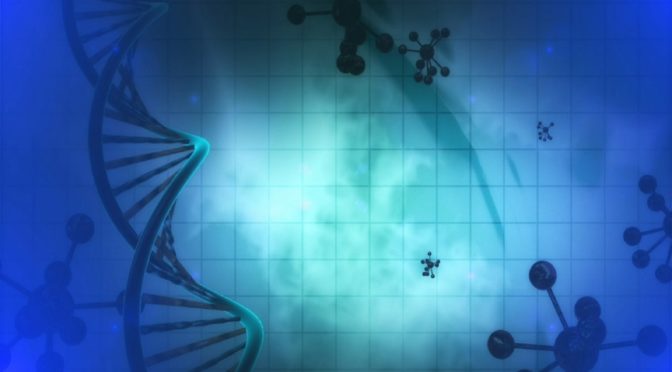So many of you are probably asking yourself, what the hell is deuterium? Deuterium is an isotope of hydrogen. This form of hydrogen is containing one neutron and one proton. Compared to a normal hydrogen atom which only contains one proton, and this makes deuterium heavier. Deuterium is used in some nuclear applications as a moderator in heavy water reactors. In the process of making heavy water you also get deuterium depleted water (DDW) as a by-product.
Deuterium and energy production in the body
Most of the research on deuterium and the effects on the body originates from eastern Europe and the former Soviet Union. This research began as a search for the reason for why some regions in Siberia had a higher number of centenarians. Their investigations led to examine the water the people were drinking. The glacial melt water showed to have 15-20% lower amounts of deuterium compared to “normal water “. In 1966 the Russian scientist published Biological Role of Heavy Water in Living Organisms and in the book they discussed the potential benefits of DDW. Their research showed that mice fed water with higher concentrations of deuterium got smaller offspring and lost their reproductive capacity. In another experiment mice that was fed glacial melt water had the adverse effect. This resulted in faster growth and higher sexual function compared to the high deuterium group.
During this time, it was also found that our mitochondria has nanomotors than spins about 9000 rpm(faster than many sports cars). The mitochondria are responsible for all of our energy production. The energy produced in the body is called ATP (Adenosine triphosphate) and this nanomotor has a crucial role in the generation of ATP. This motor is not really a motor but rather an enzyme acting as a motor called ATP-synthase.
This “nano motors “shuffles hydrogen ions through the proton channel and this generates ATP se fig 1.

Figure 1 Mitochondrial nano motor ATP -synthase
It is also here in this nano motor that deuterium becomes a problem. In a simple way we could say that deuterium due to its heaviness get stuck in the nano motor and eventually can destroy them. This inhibition of the nano motors function could lead to less energy being produced and mitochondrial dysfunction. Mitochondrial dysfunction has been linked to over 100 different diseases.
For me it’s quite obvious that lower energy production in the body leads to less energy for all processes and this could lead to problems like fatigue and eventually disease.
How to optimize your lifestyle to lower deuterium.
Luckily there are multiple of hacks and lifestyle changes that you can apply to lower your deuterium levels. The body does by itself detoxify deuterium and it also makes its own DDW in the cells so called “metabolic water”. There are also different deuterium levels in foods so by eating low deuterium foods you can manage your levels quite good. Generally, we could say that all forms of mitochondrial improvement will mitigate the problems derived from high deuterium levels.
- Drinking deuterium depleted water. This water is one of the fastest ways to aid the body in getting rid of excess deuterium. This water is quite expensive because of the high cost of production. The good part is that you only need to drink it 1-3 months per year. I use Preventa which is a Hungarian company that has a food grade DDW facility. I get mine from this shop
- Make your own metabolic water by fasting or dry fasting. Fasting or dry fasting will break down fats in the body. In the process of breaking down fats you also free stored water from your fat cells. This metabolic water is naturally low in deuterium.
- Do a ketogenic or a carnivore diet. Ketogenic or carnivore diets are low in carbohydrates. Deuterium are usually stored in the sugary parts of the food. By eliminating carbohydrates, you will get less deuterium in to the system. Also, by eating high fat foods you also teach your body to become efficient in oxidizing fats which will help to ramp up the production of metabolic water.
- Get out in the sun or use red light therapy. We know that red light or infra-red light can help with ATP production. Also, red light can change the viscosity of the water in the cells and by this making the energy production less friction less. Get our red-light panel here.

- Avoid GMO foods and meat that has been fed grains. GMO foods are modified to grow faster and usually contains higher amounts of deuterium.
- Drink hydrogen water the hydrogen gas will push out the deuterium
- Use oxygen or ozone therapies to oxygenate the body. Oxygen binds deuterium and can help with lowering your total deuterium load
- Cold therapy can improve mitochondrial function and increase your fat burning or conversion of white fat into brown fat.
- Sleep well, the body detoxifies deuterium during sleep
Sources and links for further reading:
- https://issuu.com/sciencetosage/docs/history_of_deuterium_by_victor_best
- https://evolutionnews.org/2013/05/atp_synthase_an_1/
- https://www.ddcenters.com/resources-papers/
- https://www.nature.com/articles/150021a0
- http://www.romj.org/2014-0201
- https://www.sciencedirect.com/science/article/pii/S0306987715004399
https://www.ncbi.nlm.nih.gov/pmc/articles/PMC4701522/
Like our work ? Please support us and help us fund our experiments our subscribe to our monthly news letter
https://www.patreon.com/user?u=23868885




